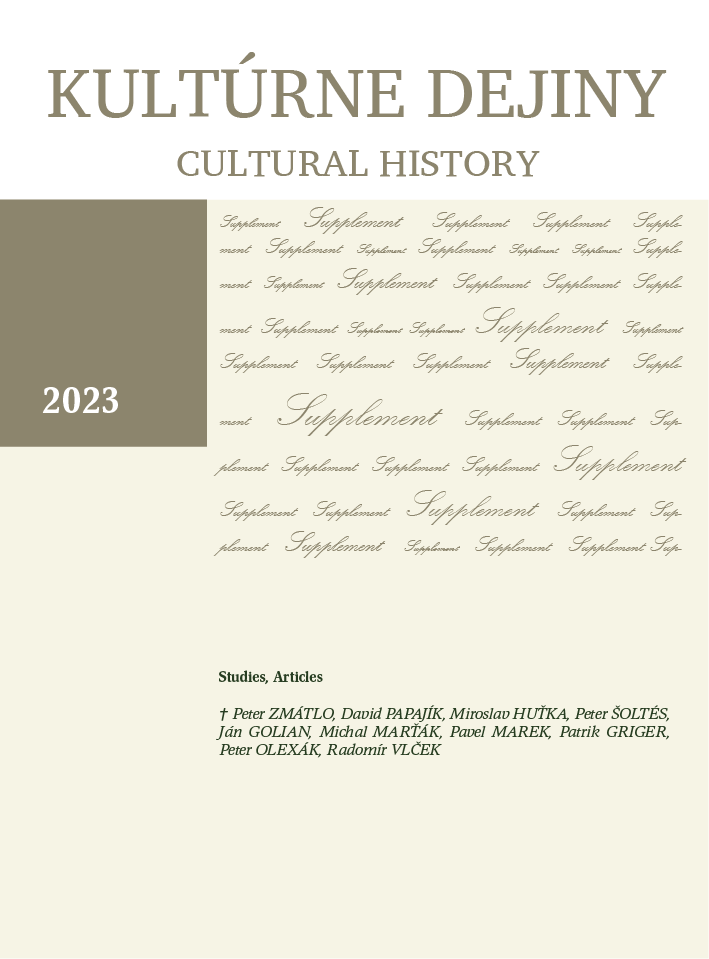Slovanství a jeho kult v československém prostředí 40. let 20. století
Slavism and its Cult in 1940’s Czechoslovak Discourse
Author(s): Radomír VlčekSubject(s): History, Cultural history, History of ideas, Political history, Recent History (1900 till today)
Published by: VERBUM - vydavateľstvo Katolíckej univerzity v Ružomberku
Keywords: Slavism; Pan-slavism; World War II; Pan-slavic Committee; Zdeněk Nejedlý; Edvard Beneš; Vladimír Clementis; Jan Slavík
Summary/Abstract: The role of Slavism in the history of Czech and Slovak nations has often been underestimated in past years. Any contemporary research focuses primarily on the 19th century, where the role of Slavism is recognised as a part of the formation of the modern Czech and Slovak nations. Alternately, it is also mentioned in the context of so-called Neo-Slavism that gained popularity at the brink of the 20th century, before the First World War. For the time of interwar Czechoslovakia and the years prior, the role of Slavism is largely overlooked. The aim of this paper is to introduce Slavism as a collection of ideas and opinions that played an important part and, regarding the years prior, had a specific position amongst the ideas and ideology of the Czechoslovak state, re-establishing after the Second World War. In this article, Slavism is described in the context of both wartime and post-war political implications. The role of Slavism is traced mainly through the statements of figures of influence in the political and ideological matters of the state. However, the interpretation also implies certain reflections of Slavism in the opinions of intellectuals aiming to establish Slavonic studies as the science of Slavic mutuality. The paper emphasizes the concept of so-called “cultural Slavism” that served to back the Czechoslovak “national way towards Socialism” during the Second World War and shortly after. The article illustrates how for some of the figures, this idea grew into a cult, also serving as an ideological instrument of peace or defence against the threat of Germanism. In this context, post-war Slavism is portrayed as a part of the political programme and strategic orientation. Methodologically, the paper primarily strives for a critical analysis of how figures like Edvard Beneš, Vladimír Clementis or Zdeněk Nejedlý approached Slavism and how some of the ideological imaginations carried Russophile (Sovietologic) patterns into the Czechoslovak social environment. Paradigmatically, the paper leans towards the traditional definition of Slavism as an important part of Czech (Czechoslovak) national identity. However, in the context of the time, it pinpoints its utilisation or even abuse, building of a cult and transition towards utilitarianism that included explicitly political Russophilia and Great Russian nationalism. In the late 1940’s, the cult of post-war Slavism dissipated, leaving Slavism exclusively to academic research.
Journal: Kultúrne dejiny
- Issue Year: 14/2023
- Issue No: Supplement
- Page Range: 177-204
- Page Count: 28
- Language: Czech

